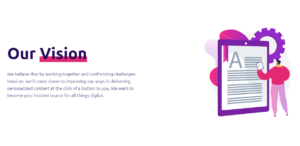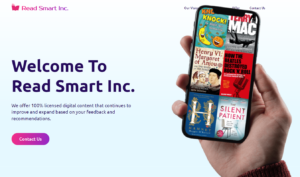The FHA Cash-Out Refinance program offers homeowners a unique opportunity to access their home equity and potentially improve their financial situation. In this article, we’ll delve into the details of this legitimate loan product and explore whether it might be the right choice for you.
As a homeowner, you may have heard about the FHA Cash-Out Refinance plan and wondered if it’s a viable option for your financial needs. According to my opinion, this program can be a valuable tool for those looking to tap into their home equity, but it’s essential to understand the requirements and potential benefits before making a decision.
In my experience, the FHA Cash-Out Refinance has helped numerous homeowners access the funds they need for various purposes, such as debt consolidation or home renovations. However, it’s crucial to work with a knowledgeable and reputable lender to ensure you’re making an informed decision. – Ezekiel Quartermaine, FHA Loan Expert
Understanding the FHA Cash-Out Refinance Program
The FHA Cash-Out Refinance is a loan program that allows homeowners to refinance their existing mortgage and borrow additional funds from their home equity. This program is backed by the Federal Housing Administration (FHA) and comes with specific guidelines and requirements, including mortgage insurance premiums and interest rates.
One of the key advantages of this program is that it allows homeowners to access a significant portion of their home equity, often up to 80% of the home’s value. This can provide a substantial amount of cash for various purposes, such as consolidating high-interest debt or making home improvements.
It’s important to note that while the FHA Cash-Out Refinance can be a helpful financial tool, it’s not the right choice for everyone. Homeowners should carefully consider their individual circumstances and consult with a trusted lender before deciding to pursue this option.
Qualifying for an FHA Cash-Out Refinance
To be eligible for an FHA Cash-Out Refinance, homeowners must meet certain requirements set by the FHA. These include having a minimum credit score, typically around 580, and a maximum debt-to-income ratio of 43%. Additionally, homeowners must have sufficient home equity to qualify, usually at least 20% of the home’s value.
The specific refinance requirements may vary depending on the lender and the borrower’s individual circumstances. For example, some lenders may require a higher credit score or a lower loan-to-value ratio to approve the loan.
| Requirement | Typical Value |
|---|---|
| Minimum Credit Score | 580 |
| Maximum Debt-to-Income Ratio | 43% |
| Minimum Home Equity | 20% |
It’s crucial for homeowners to work closely with an experienced lender to determine their eligibility and explore their options for an FHA Cash-Out Refinance.
Benefits of an FHA Cash-Out Refinance
One of the primary benefits of an FHA Cash-Out Refinance is the ability to access a significant portion of your home equity. This can provide a lump sum of cash that can be used for various purposes, such as:
- Consolidating high-interest debt, like credit card balances or personal loans
- Financing home renovations or repairs
- Paying for educational expenses or medical bills
- Improving your credit score by reducing your overall debt burden
Another potential advantage of an FHA Cash-Out Refinance is the opportunity to secure a lower interest rate on your mortgage. If market conditions have improved since you originally financed your home, refinancing could help you save money on your monthly mortgage payments.
In my years of working with homeowners, I’ve seen the FHA Cash-Out Refinance program provide a lifeline for those facing financial challenges. By accessing their home equity and consolidating debt, many have been able to regain control of their finances and improve their overall financial well-being.
However, it’s important to remember that an FHA Cash-Out Refinance also comes with costs, such as closing fees and mortgage insurance premiums. Homeowners should carefully weigh the potential benefits against these expenses to determine if this option is right for them.
FHA Cash-Out Refinance vs. Conventional Cash-Out Refinance
When considering a cash-out refinance, homeowners may wonder about the differences between an FHA Cash-Out Refinance and a conventional cash-out refinance. While both options allow homeowners to access their home equity, there are some key distinctions to keep in mind.
One of the main differences is the mortgage insurance requirement. With an FHA Cash-Out Refinance, borrowers are required to pay both upfront and annual mortgage insurance premiums, which can add to the overall cost of the loan. Conventional cash-out refinances, on the other hand, may not require mortgage insurance if the borrower has sufficient equity in their home.
Another factor to consider is the credit score requirement. FHA Cash-Out Refinances typically have more lenient credit score requirements compared to conventional cash-out refinances, making them a more accessible option for some borrowers.
| Feature | FHA Cash-Out Refinance | Conventional Cash-Out Refinance |
|---|---|---|
| Mortgage Insurance | Required | Not always required |
| Credit Score Requirements | More lenient | Typically higher |
| Interest Rates | Competitive | Competitive |
Ultimately, the choice between an FHA Cash-Out Refinance and a conventional cash-out refinance will depend on your individual circumstances, including your credit score, home equity, and financial goals. It’s essential to consult with a trusted lender to explore your options and determine the best path forward.
Working with FHA-Approved Lenders
When pursuing an FHA Cash-Out Refinance, it’s crucial to work with an FHA-approved lender. These lenders have been vetted by the Federal Housing Administration and are well-versed in the specific guidelines and requirements of FHA loan programs.
FHA-approved lenders are committed to protecting borrowers and ensuring that they are making informed decisions about their financial futures. They will work closely with you to assess your eligibility, explain the terms and conditions of the loan, and guide you through the application and closing process.
One of the key responsibilities of FHA-approved lenders is verifying your income and credit information. They will carefully review your financial documents to ensure that you have the ability to repay the loan and that you meet the necessary credit score and debt-to-income ratio requirements.
Alternatives to an FHA Cash-Out Refinance
While an FHA Cash-Out Refinance can be a valuable financial tool for some homeowners, it’s not the only option available. Depending on your specific needs and circumstances, you may want to consider alternative loan products, such as:
- FHA Rehab Loan: If you’re looking to finance home renovations or repairs, an FHA 203(k) Rehab Loan may be a better fit. This program allows you to borrow funds for both the purchase or refinance of a home and the cost of renovations, all in one loan.
- Home Equity Loan or Line of Credit: If you have significant home equity and prefer a more straightforward borrowing process, a home equity loan or line of credit may be a viable alternative. These options allow you to borrow against your home equity without refinancing your existing mortgage.
- Personal Loan: For smaller expenses or if you don’t have sufficient home equity, a personal loan may be a more appropriate choice. While personal loans typically have higher interest rates than mortgage products, they can still be a legitimate loan product for certain situations.
As with any financial decision, it’s essential to carefully consider your options and consult with a trusted lender or financial advisor before making a choice. They can help you evaluate your unique circumstances and determine the best course of action for your needs.
In conclusion, the FHA Cash-Out Refinance program can be a legitimate and valuable option for homeowners looking to access their home equity and improve their financial situation. By understanding the requirements, benefits, and potential drawbacks of this program, and working closely with an FHA-approved lender, you can make an informed decision about whether an FHA Cash-Out Refinance is right for you.
See also:
- Is 24/7 Lending Group a Legit and Reliable Loan Service?
- Discover Legitimate Work From Home Jobs with No Startup Fee
- The Truth Behind the Viral $6,400 Subsidy Claims: Is It a Legit Government Offer or a Scam?
- Discover the Best Legit Games That Pay Real Money Instantly!
- Is the National Society of High School Scholars (NSHSS) Legit or a Scam?






